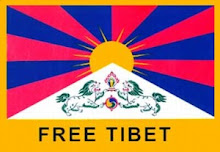 «Yengi Yol means “new way”, in Turkish as well as in Uzbek. The “Yengi Yol” Ensemble was born a few years ago when European musician E.H. During went to meet young musicians his age in Uzbekistan. Back then, when his flamenca guitar met their traditional Uzbek music, the result was convincing straight away. The band was born and several concerts and recordings were rapidly done, so that a new sound could be heard in European and Oriental countries.
«Yengi Yol means “new way”, in Turkish as well as in Uzbek. The “Yengi Yol” Ensemble was born a few years ago when European musician E.H. During went to meet young musicians his age in Uzbekistan. Back then, when his flamenca guitar met their traditional Uzbek music, the result was convincing straight away. The band was born and several concerts and recordings were rapidly done, so that a new sound could be heard in European and Oriental countries.Today, “Yengi Yol” has set off again, towards a new, totally original adventure where Turkish Ottoman music meets Uzbek music. The four European musicians (A.Espinouze, S.Halaris, A.Morineau et E.H.During) who took up the challenge already had sound experience of Ottoman high culture music, but they had never tackled high culture tradition from Central Asia.
The meeting occurred in May 2007 in Uzbekistan when three concerts were given (in Samarqand, Bukhara and Tashkent) to an audience dumbfounded by the new tones brought by “Yengi Yol” to their music. A few videos and some recordings give an account of what had probably never happened in centuries.
In the 15th century, exchanges were still flourishing between the door to Europe and the heart of Asia. Thus, musicians from Samarqand or Bukhara were able to play at the Ottoman court of Istanbul and vice versa. The works of the repertoire would travel over thousands of kilometres, from one end of a chain of transmission to the other, and were organized into a both refined and complex codified knowledge: the Maqam or the art of high culture music, shared by the elite of musicians from the Maghreb to China. With the passing of centuries and due to the setting up of political borders, the Maqam was progressively divided and interpreted in accordance with local claims, each region developing its own style and repertoire.
Yengi Yol proposes to go in the reverse direction. While keeping the specificities proper to each culture, they want to play Ottoman and Uzbek pieces having obvious similarities by drawing from the ancient – up to 15th century – repertoires of the court as well as Sufi brotherhoods.
As obvious and natural as the result may appear, such a meeting has never happened before.» (Yengi Yol’s MySpace page)
Link in comments











4 comments:
http://sharebee.com/7f561f9b
thanky ou once again for this exquisite choice of music
Martin
Thanks!
hesgoal
Post a Comment